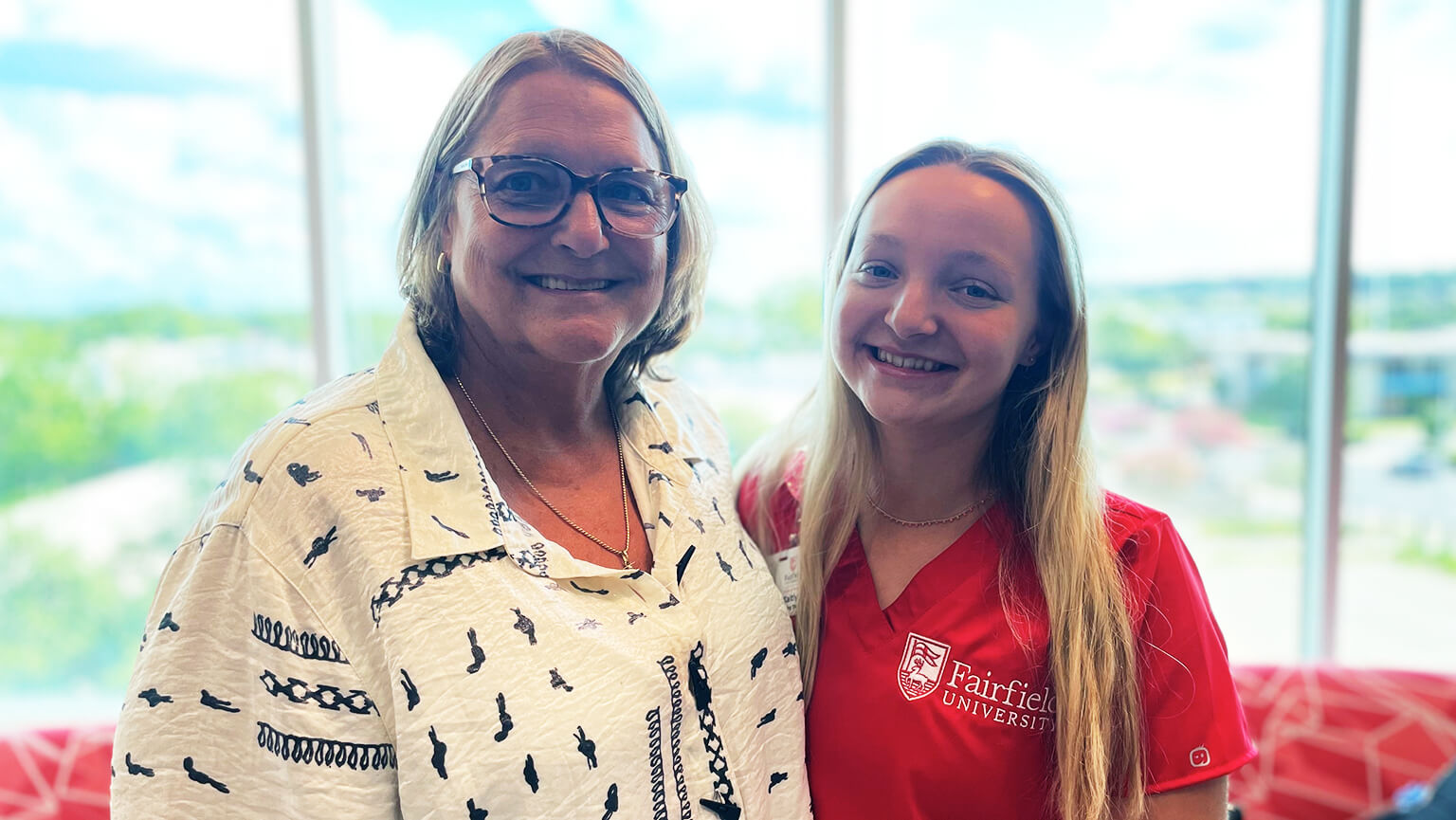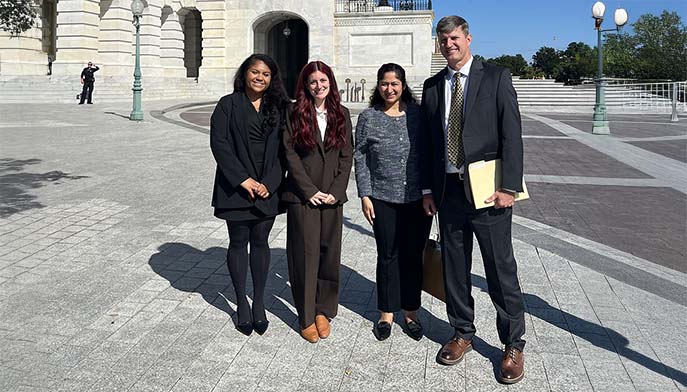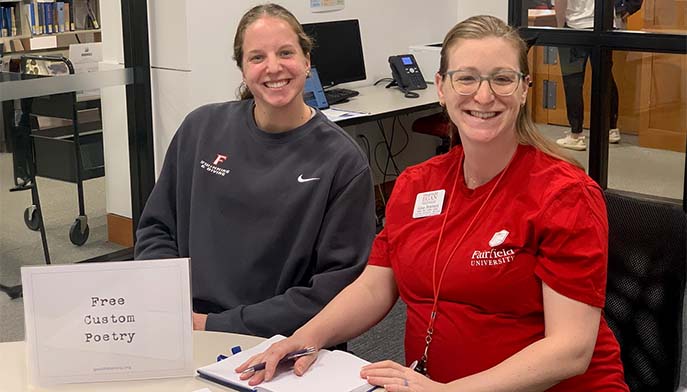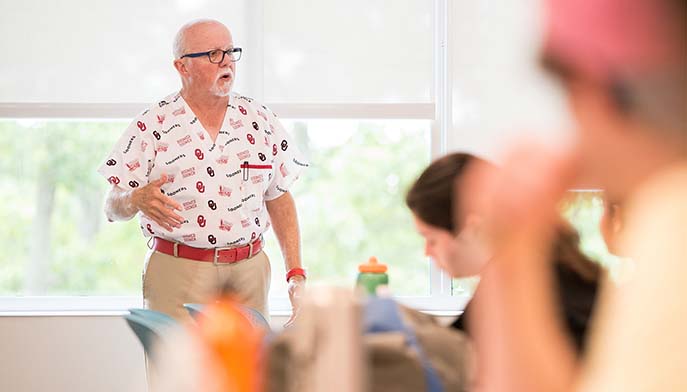Egan School nursing student Kaitlyn Faulk ‘25 is assigned to a clinical rotation at the Austin, Texas facility that twice rehabilitated her grandmother after amputations.
When Nancy Key lost her foot and then leg to bone cancer, she sought inpatient rehabilitation at Park Bend Health Center in North Austin, Tex. During her two bouts at the skilled nursing facility, her daughter and granddaughter were frequent visitors. Now, 20 years later, that granddaughter, Kaitlyn Faulk, a nursing student at Fairfield University’s Austin campus, is learning to care for elderly patients at the same place that once cared for her grandmother.
Kaitlyn is a first-semester student in the Accelerated Second Degree Bachelor of Science in Nursing program (ASDNU) in Fairfield's nationally ranked Marion Peckham Egan School of Nursing and Health Studies. She was assigned to Park Bend Health Center for the clinical portion of her geriatric nursing course. When she first learned about her placement at the facility, Kaitlyn thought nothing of it. She did not recognize the name because she was no more than three years old at the time of her last visit.
But Kaitlyn’s mother remembered. “I was shocked and thrilled when I heard the news,” said Kristi Faulk. “That Kaitlyn is helping patients at Park Bend is very special to me since Mom was there.”
Though the circumstances that initially linked the Faulks to Park Bend were difficult, Kristi believes they helped forge her daughter’s strong sense of empathy and compassion. She recalls, for example, when Kaitlyn offered assurance and comfort to her grandmother upon seeing her postoperative wound for the first time. “Oh, Grandma,” Kaitlyn said, “that’s not so bad.”
The regular visits to Park Bend might also have influenced Kaitlyn’s decision to pursue a career in healthcare. Kaitlyn recalls being around medical staff from a very early age. She always found their work interesting and enjoyed watching them provide care. Her observations taught her that nurses generally get to know patients better than physicians do and that they are frequently the primary source of encouragement to patients.




